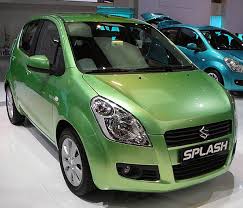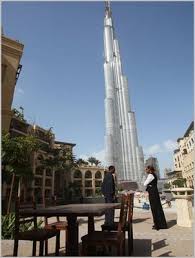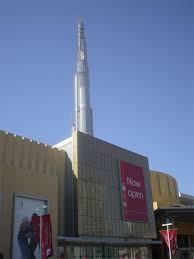




Easyjet said the earliest it could fly us back to London was on Wednesday, February 4. This was not an option as we all had important business commitments on the Tuesday afternoon.
We spent the night in a hotel in Geneva (which we paid for) and found our own way home by train. Easyjet has made us a modest offer of £259 each but that still leaves each of us £241 out of pocket.
My travel insurer says we have no valid claim and must pursue the airline.
But what's the legal position when bad weather is to blame?
Gill Charlton replies
When airlines in the European Union have to cancel flights for reasons beyond their control, such as bad weather, they are legally required to provide hotel accommodation and meals for customers and to rearrange a flight at the earliest opportunity. (Switzerland is a signatory to the relevant EU regulation.)
The law also says that passengers can choose between applying for a ticket refund or accepting the re-routing. Unfortunately "re-routing" is not defined in the EU regulation nor in IATA's approved conditions of carriage.
Airlines tend to interpret the wording as the offer of a seat on another of its own services.
Given this, it could be said that you took yourself outside the scope of the EU regulation – and the airline's own conditions of carriage – by arranging your own hotel room and journey back to Britain.
"If passengers make their own travel arrangements instead of taking up the airline's re-routing offer it can be an uphill struggle to get the money back", said a spokesman for the Air Transport Users Council.
"Ideally we would like airlines to reimburse passengers in full as this would be in keeping with the spirit of the EU regulation, but in Mr Hough's case we feel that meeting his extra expenses halfway seems a reasonable compromise."
David Buckman, London, writes
My partner will not fly but we would dearly like to spend a week or so on Madeira. Is it possible to travel there by sea?
Gill Charlton replies
Cruise ships heading south from Britain spend only a day in Madeira (above), but there are two other options.
Hazel and Don Illingworth, Norwich write
As part of our golden wedding anniversary we will be spending a few days in New York in December and we should like to see a Broadway show. Can you give us the name of a reliable ticket agency?
Gill Charlton replies
It's usually possible to book tickets direct with New York theatres using the online booking facility on their website. This will give you the greatest choice of seats and enable you to avoid booking fees. You collect the tickets from the box office on the day.
Stephen Mayhew, St Neots, Cambs writes
We are due to go on an Ocean Village cruise in October that will be calling at Cochin for the day. The cruise line is insisting that we purchase tourist visas, though we would be quite happy to save £120 and "view Cochin through a porthole", to quote John Birch from Benmar's visa service. Who is correct?
Gill Charlton replies
Theoretically you should be able to stay on board without a visa, but immigration officers at Cochin do occasionally insist that all passengers have visas because the ship is docking in Indian waters.
The Indian High Commission's visa agent, VFS Global, says that you should be fine with a transit visa, which costs £15 a person. However, Ocean Village tells me that it has had difficulties with the immigration authorities over transit visas as these are primarily designed for ship-to-airport transfers. It says that it also insists on tourist visas in case passengers need to disembark for medical treatment or want to return home early to deal with an emergency.
Jeremy Reeve, Wallingford, writes
I read your piece with regard to Premier Inn's guaranteed pricing policy (Ask Gill, March 14) with interest. My experience has been very different.
Last July I booked three rooms at the Arundel Premier Inn for July 2-5 2009, after guessing that the Goodwood Festival of Speed would, as usual, be held over this weekend. The cost was £66 per room per night.
In December I was contacted by the hotel to say that it was invoking its "key events" policy and that the room rate would now be £102.50 per night for the Thursday night and £124 per night for Friday and Saturday including breakfast (usually an extra). I was told I would either have to pay up or cancel.
How can Premier Inn tell you that the booked rate is never increased and yet continue to pursue this "key event" policy on rates?
Gill Charlton replies
Quite a few readers emailed to say that they had suffered price rises at Premier Inns after hotels discovered that "key events" were taking place nearby. I went back to the company for clarification.
"Our brand policy is that we honour all rates given at the time of booking. If a hotel breaks this policy we will address this and act accordingly", Premier Inn's spokesman said. "We are contacting all of our hotels this week to remind them of our policy and ensure it is adhered to in future."

Heavy snow disrupted air and rail travel in Europe today, halting flights at Heathrow airport entirely and bringing traffic in London almost to a standstill.
Tens of thousands of commuters were advised not to attempt the journey into work in London, experiencing some of its worst snow in 18 years.
Buses were cancelled altogether and hundreds of schools were closed across the country, leaving children to play and build snowmen in parks and gardens.
In northern France, snow blanketed Paris and surrounding countryside and brought major air, rail and road systems to a halt.
London Mayor Boris Johnson suspended the congestion charge for motorists in the centre of the capital today and appealed to higher powers to end the bad weather. "My message to the heavens is - you have put on a fantastic display of snow power, and I think that is probably quite enough," he told the BBC.
London business leaders said the estimated cost to the British capital alone could be as much as £48 million in lost productivity. All flights in and out of Heathrow were cancelled.
London's three other commercial airports reported severe delays and flight cancellations. Highway authorities warned of hazardous driving conditions in southern and central England.
Dublin, Cork and Belfast airports were also forced to cancel some flights and Gatwick, Stansted and Luton close to London, and London City Airport were badly hit. A Cyprus Airways jet at Heathrow slipped off a taxiway after arriving from Larnaca but came to a safe halt. There were no injuries.
Britain’s Met Office said some parts of the country, including London and other parts of south east England, were covered by up to 20 centimetres of snow this afternoon. It issued a "severe weather" warning for large parts of the country, with weather experts saying south east England was experiencing some of its worst snow since the early 1990s.
The international rail operator Eurostar also reported delays due to snow in Britain, France and Belgium.
Many workers attempted to walk to their offices, trudging through thick snow, but London's Chamber of Commerce said lost productivity could cost the capital dear at a time when the economy is already in recession.
"We know that a one-day closure of the Tube alone can cost the capital up to £48 million ...so with most of London's transport infrastructure down, the costs could be similarly high," spokeswoman Helen Hill said in a statement. "Hopefully things will not grind to a halt completely however, as local staff may be able to get into the office and many others can now work remotely and conduct business online."
So far, this winter has been Britain's coldest in more than a decade and forecasters expect the cold weather to continue for several more days with freezing winds blowing in from Russia.





LONDON - Heavy snow disrupted air and rail travel in Europe on Monday, halting flights at London's main airport entirely and bringing traffic in the British capital almost to a standstill.
Tens of thousands of commuters were advised not to attempt the journey into work in London, experiencing some of its worst snow in almost 20 years. Buses were canceled altogether and hundreds of schools were closed across the country, leaving children to play and build snowmen in parks and gardens.
"I'd rather be sledging than at school," said 7-year-old Georgie Cunliffe, who was playing in a London park.
Conditions familiar to eastern Europe and other northerly countries notoriously pitch Britain into chaos, its infrastructure ill prepared for the cold.
In northern France as well, snow blanketed Paris and surrounding countryside and brought major air, rail and road systems to a halt.
London business leaders said the estimated cost to the British capital alone could be as much as 48 million pounds ($69 million) in lost productivity.
All flights in and out of Heathrow, a major international hub, were canceled.
London's three other commercial airports reported severe delays and flight cancellations. Highway authorities warned of hazardous driving conditions in southern and central England.
Dublin, Cork and Belfast airports were also forced to cancel some flights and Gatwick, Stansted and Luton close to London, and London City Airport were badly hit. A Cyprus Airways jet at Heathrow slipped off a taxiway after arriving from Larnaca but came to a safe halt. No-one was hurt.
WEATHER WARNING
Britain's Met Office said some parts of the country, including London and other parts of south east England, could be covered by up to 15 centimeters of snow by midday on Monday.
It issued a "severe weather" warning for large parts of the country, with weather experts saying south east England was experiencing some of its worst snow since the early 1990s.
The international rail operator Eurostar also reported delays due to snow in Britain, France and Belgium.
Many workers attempted to walk to their offices, trudging through thick snow, but London's Chamber of Commerce business organization said lost productivity could cost the capital dear at a time when the British economy is already in recession.
"We know that a one-day closure of the Tube alone can cost the capital up to 48 million pounds ...so with most of London's transport infrastructure down, the costs could be similarly high," spokeswoman Helen Hill said in a statement.
"Hopefully things will not grind to a halt completely however, as local staff may be able to get into the office and many others can now work remotely and conduct business online."
In France, traffic jams were recorded on roads leading into the capital during the rush hour and the Paris transport authority said many buses had to be canceled.
So far, this winter has been Britain's coldest in more than a decade and forecasters expect the cold weather to continue for several more days with freezing winds blowing in from Russia.

LONDON — Britain’s capital cleared the soggy remnants of a paralyzing snowstorm Tuesday as businesses counted the multibillion-pound cost.
An estimated six million people skipped work Monday when the largest snowstorm to hit London in 18 years stopped bus and subway services, grounded airliners and hobbled businesses.
The Federation of Small Businesses said the cost to Britain’s economy through lost productivity could be as high as three billion pounds.
Transportation officials, business leaders and local authorities accused one another of failing to prepare for the long-predicted storm that crippled Britain’s transport network by dropping more than 10 centimetres of snow in London overnight Sunday, and another 10 centimetres Monday.
“We can’t change nature and if nature does this to us we have a problem,” said John Ransford, chief executive of Britain’s Local Government Association, which represents the small district and town councils largely responsible for keeping roads and sidewalks clear.
London Mayor Boris Johnson said many of the city’s authorities simply didn’t have enough snow plows to deal with the downfall. In the borough of Fulham and Hammersmith, the local authority said it had no plows and only two machines to salt roads.
The Association of British Insurers said that car accidents on Britain’s icy highways surged Monday, with claims for damage 30 per cent than normal.
Most airports, bus routes and subway lines in London were working as normal Tuesday, but more than 1,000 British schools remained closed and thousands of workers were staying home for a second day.
David Frost, director general of the British Chambers of Commerce, said few people raised in the freezing British winters of 1960s and 1970s could understand the failure to prepare.
“I wonder whether we have become a bit too complacent, or we are being a bit too bowled over by the constant talk of global warming,” he told BBC radio. “We should be perhaps planning on the basis that there is more freak weather about and we shouldn’t just buckle to it.”
Many Londoners noted that bus services had continued through the Second World War and paused only for around an hour during the 2005 transit network suicide bombings.
Some suggested that British workers had set a poor example for the country’s children. Young Britons may become adults who think that “when things get difficult you should just stay at home and have fun,” said Margaret Morrissey, of the parenting lobby group Parents Outloud.

Jan. 5 (Bloomberg) -- Google Inc., aiming to take on Apple Inc.’s iPhone, introduced a mobile phone called Nexus One.
The phone was designed in close partnership with Taiwan’s HTC Corp., Mario Queiroz, Google’s vice president of product management, said today at an event at Google’s headquarters in Mountain View, California.
















SAN FRANCISCO — Google Inc. is again trying to shake up the mobile market.
In holding an event Tuesday in which it was expected to outline its vision for how a mobile phone should be made and sold, the Internet search leader will likely raise the stakes in its bid to gain more control over how people surf the Web while they're on the go.
The catalyst in Google's latest attempt to redefine the mobile market apparently will be the Nexus One, the first smart phone designed by the company's own engineers.
Google has said little about the phone except to confirm that its workers received the handsets three weeks ago for a final round of internal testing. Google is expected to provide the first concrete details about the phone, along with the company's vision for how such devices should be made and sold, during a news conference Tuesday at Google's headquarters in Mountain View.
In its invitation to the event, Google said the wireless market has only seen "the beginning of what's possible" with the free Android operating system that it introduced for mobile phones in late 2007.
Android was designed to make it easier to interact on a mobile phone with Web sites and services, including Google's, while providing an egalitarian platform to run applications developed by outside programmers.
The applications don't have to go through an extensive review before they can be distributed to Android-powered devices, a contrast from the control that Apple Inc. holds on its hot-selling iPhone.
Until now, Google has been content to let other companies design the devices relying on Android. And those devices thus far have largely been distributed like most other mobile phones, tethered to major wireless carriers that typically require buyers to lock into two-year contracts in return for discounts on the handsets.






Reliance Industries, which has made a bid to take over petrochemicals firm LyondellBasell, on Monday raised Rs 2,675 crore (around $ 577 million) through a share sale, its second big equity fund raising in less than four months. Life Insurance Corp of India which holds around 6 per cent in Reliance Industries acquired the shares. The fund raising is seen as part of Reliance's plan to create a corpus for the takeover of Luxembourg-based LyondellBasell in a deal that could be worth around $12 billion.
In September 2009, Reliance raised Rs 3,188 crore by selling treasury stock worth 1.5 crore shares at an average price of Rs 2,125 per share (before the bonus issue). With this, RIL has mobilised Rs 5,863 crore that could used to fund the Lyondell takeover. “Petroleum Trust sold approximately 258.50 lakh equity shares of RIL. Reliance Industrial Investments and Holdings Limited, a wholly-owned subsidiary of RIL, is the beneficiary of the Trust,” RIL said in a statement on Monday. RIL shares lost 1.29 per cent to Rs 1,075.35 in a strong market on Monday.
RIL said the Trust will realise approximately Rs 2,675 crore, at an average price of about Rs 1035 per share. The financial impact will be reflected in the consolidated financial statements of the company, it said.
The treasury stock — created as a result of past mergers of subsidiaries with the parent company — was held by Petroleum Trust and nominally recorded as promoters’ stake, but the stock cannot be voted as per the rules. Petroleum Trust held a 6.65 per cent stake in the company — or 10.46 crore shares — prior to the two stock sales.









Though the 10th Auto Expo, which begins from Tuesday in the Capital, will not showcase a Nano-like innovation, which was the toast of the previous expo in 2008, the event will witness 10 global launches — the highest so far.
Topping the launches will be small and concept cars. However, sport utility vehicles (SUVs), along with super-bikes from Harley Davidson, some luxury sedans from the likes of Mercedes Benz, BMW India and Audi and a couple of hybrid cars, will be the other draws of the show.
On the eve of the Expo, General Motor’s Chevrolet took the lead by launching a compact car, the Chevrolet Beat, priced between Rs 3.34 lakh and Rs 4.23 lakh.
Tuesday will see the unveiling of concept cars from Honda Siel Cars India and a small car from Toyota Kirloskar Motors exclusively designed for the Indian market.
Though the Honda and Toyota vehicles will only be launched in 2011 and beyond, their unveiling will mark the foray of two Japanese icons into the mass market.









World's tallest building opens in Dubai
The world's tallest building has been opened with a dramatic fireworks ceremony in the Gulf emirate of Dubai.
The Burj Khalifa was revealed to be 828m (2,716ft) high, far taller than the previous record holder, Taipei 101.
Known as the Burj Dubai during construction, the tower has been renamed after the leader of Dubai's oil-rich neighbour, Abu Dhabi.
Last month, Abu Dhabi gave Dubai a handout of $10bn (£6.13bn) to help it pay off its debts.
Construction of the Burj Dubai began in 2004, at the height of an economic boom.
Clad in 28,000 glass panels, the tower has 160 floors and more than 500,000 sq m of space for offices and flats.
| Sheikh Mohammed |
The tower also lays claim to the highest occupied floor, the tallest service lift, and the world's highest observation deck - on the 124th floor.
The world's highest mosque and swimming pool will meanwhile be located on the 158th and 76th floors.
Technical challenges
The opening ceremony, held 1,325 days after excavation work started, was attended by some 6,000 guests.
Though not complete on the inside, it was officially opened by Dubai's ruler, Sheikh Mohammed Bin Rashid Al Maktoum.
 The Burj Dubai dwarfs its neighbouring buildings |
In a surprise move he renamed it Burj Khalifa - after the president of the United Arab Emirates and emir of Abu Dhabi, Sheikh Khalifa bin Zayed Al Nahayan.
Sheikh Mohammed described the tower as "the tallest building ever created by the hand of man".
"This great project deserves to carry the name of a great man. Today I inaugurate Burj Khalifa," he said.
Sheikh Mohammed also unveiled a plaque inside the tower bearing the new name.
A dramatic fireworks and lights show took place around the tower while a screen displayed its exact height, which had previously been kept secret.
At 828m, Burj Khalifa dwarfs the 508m Taipei 101 and the 629m KVLY-TV mast in the US, the tallest man-made structure. Its spire can been seen 95km (60 miles) away.
"We weren't sure how high we could go," said Bill Baker of Skidmore, Owings & Merrill, the building's structural engineer. "It was kind of an exploration... a learning experience."

Mohamed Ali Alabbar, chairman of Emaar Properties, the developer behind Burj Khalifa, told the BBC that the building's design had posed unprecedented technical and logistical challenges, not just because of its height, but also because Dubai was susceptible to high winds and was close to a geological fault line.
"We have been hit with lightning twice, there was a big earthquake last year that came across from Iran, and we have had all types of wind which has hit us when we were building. The results have been good and I salute the designers and professionals who helped build it," he said.
| BURJ KHALIFA IN NUMBERS  95: distance in km at which its spire can be seen 504: rise in metres of its main service lift 57: number of lifts 49: number of office floors 1,044: number of residential apartments 900: length in feet of the fountain at the foot of the tower, the world's tallest performing fountain 28,261: number of glass cladding panels on the exterior of the tower |
The design incorporates ideas from traditional Islamic architecture, while the open petals of a desert flower were the inspiration for the tower's base.
Burj Khalifa will be home to 1,044 luxury apartments, 49 floors of offices and eventually a 160-room Armani-branded hotel. Around 12,000 people are expected to live and work in the tower, which is part of a 500-acre development.
However, investors are facing losses even before the tower is completed because property prices in Dubai have slumped amid the global economic crisis.
Some apartments were selling for $2,700 per sq ft, but are now going for less than half that. Analysts say it will be particularly hard to lease office space because few companies can justify paying premiums for luxury.
The BBC's Malcolm Borthwick in Dubai says developers are holding back on new flagship projects, so Burj Khalifa could mark the end of an era for skyscrapers in the Gulf - at least in the short term.